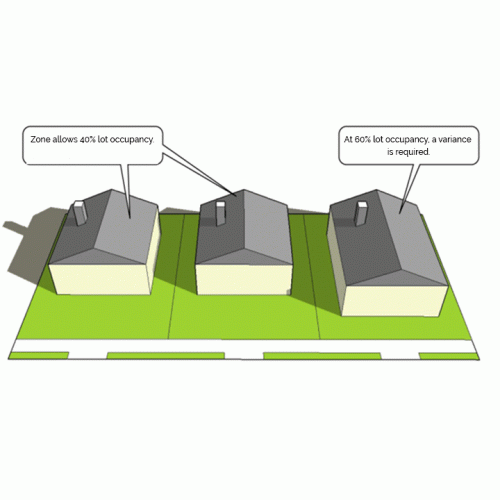By: Mark A. Severson
Board Certified Real Estate Specialist by the Minnesota State Bar Association
The devastating blow of the COVID-19 Virus has been felt by many in virtually all aspects of life, from Wall Street to Main Street. Business has been essentially frozen as we all anxiously await positive developments. The events of COVID-19 have certainly affected one’s ability to perform under previously agreed upon contracts. As we navigate this novel pandemic, we may wonder (a) does my contract address impossibility of performance due to a pandemic, or (b) what can I can do in a pure legal sense to protect myself against further devastation? In terms of drafting contracts, there is a tool that has been used to address these concerns, dating back to the French civil law system. “Force Majeure” is French for “superior force” and was intended to address “acts of God” for which no party to an agreement can be held accountable.
Specifically, a Force Majeure Clause is a contractual provision allocating the risk of loss if performance becomes impossible or impracticable, especially as a result of an event or effect that the parties could not have anticipated or controlled. Including such a clause in a contract is an attempt of the parties to account for unexpected events or events that are so devastating it ought to excuse the parties from performance of the contract. The terms can account for both acts of God (natural events, floods, hurricanes) and/or acts of people (riots, strikes, wars). It is a provision that can effectively remove liability for natural and unavoidable catastrophes that interrupt the expected course of events and restrict parties to a contract from fulfilling their previously agreed upon obligations.
For contracts currently in place, a party may either invoke an existing Force Majeure Clause or request an amendment to include such a clause. Without providing a full legal analysis, a contract containing a general Force Majeure Clause may not sufficiently apply to COVID-19. Generally, Courts analyzing the issue must determine if it is a qualifying event, if the risk of nonperformance was foreseeable and able to be mitigated, and if performance is impossible. A party is not able to invoke a Force Majeure Clause if it could have foreseen and mitigated nonperformance and, more importantly, if performance is merely difficult rather than impossible. Having COVID-19 classified as a pandemic is of great import to the question of whether a Force Majeure Clause is applicable. If one is working under a government that has ordered certain businesses to not even go to work, and where remote operations are impossible, it would seem to make COVID-19 a qualifying event.
Locally, the invocation of a Force Majeure Clause came up with the Minnesota Twins and the Metropolitan Sports Facilities Commission. The Twins attempted to invoke the clause when it learned that it would be contracted from Major League Baseball. In that case, the Twins argued they should be excused from the contract since they would be unable to play a home game for a reason beyond the Teams and the Commissions control, including strikes, an act of God, a natural casualty, or a court order. Ultimately, the Court sided with the Metropolitan Sports Facilities Commission and determined that the Twins would be in default of the agreement if they stop playing at the Metrodome, even if the team was removed from the MLB (in other words contraction by the MLB was not a qualifying event).
So what does this mean for us now? Parties may consider specifically accounting for the COVID-19 pandemic by agreeing it is a qualifying event. In drafting the language, like all provisions, it is critical to be specific and leave nothing to assumption. A Force Majeure Clause is not the only means of “getting out of a contract” due to catastrophic events. A party may also argue the doctrine of “frustration of purpose” or “impossibility” as a justifiable reason to excuse one from contractual obligations. This is a doctrine that if a party’s principal purpose is substantially frustrated by unanticipated changed circumstances, that party’s duties are discharged and the contract is considered terminated. This is essentially an excuse for a party’s nonperformance because of uncontrollable circumstances. Of course, all parties are encouraged to honor their contracts; however, when performance is truly impossible, it is not dishonorable to apply principles of law that address the situation.
As you navigate this new world, and enter into contracts, raise this issue with your attorney or real estate agent so that it may be accounted for in your contract, should it be appropriate in your situation. Many real estate purchase agreement forms have already been revised to account for such a provision due to the devastation of this pandemic. Even if you wish not to have such a provision, be mindful of it as the other party to the contract may wish to include it.


 Local governmental units, including but not limited to municipalities, townships, or counties, (referred to hereafter as “LGU”) enact zoning ordinances as a way to regulate real estate development. On a very basic level, most would agree that zoning ordinances are for the mutual benefit of the LGU and its residents. It is a means to obtain order and ensure zones of commonality. For instance, a zoning ordinance sets up a residential zone with a certain set of regulations of allowed uses as well as a commercial zone with a certain set of regulations setting forth allowed uses. As the circumstances of a property and surrounding properties change, along with the applicable laws, sometimes it may not make sense to strictly enforce the letter of the law against a particular landowner seeking to develop his or her home or commercial property. If circumstances unique to the property can justify a landowner violating the zoning ordinance, then it may make sense for an LGU to allow that landowner to violate the ordinance. This is why zoning ordinances typically have a promulgated process for permission to vary from certain provisions of the zoning ordinance (which, in other words, is permission to do something with your land that would otherwise violate the ordinance).
Local governmental units, including but not limited to municipalities, townships, or counties, (referred to hereafter as “LGU”) enact zoning ordinances as a way to regulate real estate development. On a very basic level, most would agree that zoning ordinances are for the mutual benefit of the LGU and its residents. It is a means to obtain order and ensure zones of commonality. For instance, a zoning ordinance sets up a residential zone with a certain set of regulations of allowed uses as well as a commercial zone with a certain set of regulations setting forth allowed uses. As the circumstances of a property and surrounding properties change, along with the applicable laws, sometimes it may not make sense to strictly enforce the letter of the law against a particular landowner seeking to develop his or her home or commercial property. If circumstances unique to the property can justify a landowner violating the zoning ordinance, then it may make sense for an LGU to allow that landowner to violate the ordinance. This is why zoning ordinances typically have a promulgated process for permission to vary from certain provisions of the zoning ordinance (which, in other words, is permission to do something with your land that would otherwise violate the ordinance).